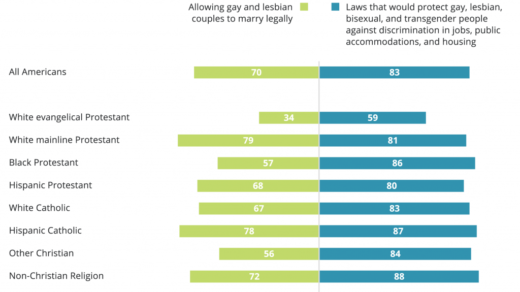CDC experts worry about deadlier Mpox strain – LGBTQ Nation
Author: John Russell
A deadlier strain of mpox (formerly known as “monkeypox”) — currently spreading in the Democratic Republic of Congo (DRC) — has U.S. experts warning about the imperative to contain the outbreak within the Central African nation.
The clade II strain which spread in the U.S. and Europe two years ago, predominantly among men who have sex with men, only resulted in death in about 0.1% – 3.6% of cases. According to the CDC, the clade I strain has resulted in death in 1.4% – 10% of cases. In the DRC, about one in every 20 patients who have contracted the strain have died.
Global perspectives delivered right to your inbox
Our newsletter bridges borders to bring you LGBTQ+ news from around the world.
The clade I outbreak also appears to be more widespread, with cases reported in 25 of 26 provinces in the DRC during 2023 and 2024, according to the CDC. Researchers also noted increased mpox outbreaks in countries bordering the DRC, leading to fears of a more deadly global outbreak, USN reported.
Both strains of mpox are spread through close personal contact, including direct skin-to-skin contact, and contact with objects, fabrics, and surfaces. The disease causes a painful rash, but symptoms can also include headache, fever, chills, body ache, fatigue, and swollen lymph glands. Anyone can contract mpox, but the 2022 global outbreak was particularly prominent among men who have sex with men.
CDC researchers said that sexual transmission of the more deadly clade I strain has been reported “among men-who-have-sex-with-men and both male and female sex workers and their contacts” in two recent outbreaks in the DRC.
The CDC already issued a Health Alert Network notice in early December 2023, urging expedited testing for clade I among U.S. patients with mpox symptoms who had recently been to DRC, according to Thursday’s report.
While there is a vaccine for mpox, the CDC noted that “in the United States, only 23% of persons at risk for clade II MPXV infection have completed the 2-dose Jynneos vaccination series.” A study released earlier this year found that closeted men who have sex with men were less likely to get vaccinated or treated for mpox due to lack of information about the virus and the vaccine.
Messaging around the virus has all but disappeared in the U.S. since the Department of Health and Human Services officially declared an end to the national public health emergency over a year ago. Since then, small mpox outbreaks have occurred in New York, North Carolina, and Colorado
Vaccinating at-risk individuals is vital, the CDC said. The CDC recommends that at-risk individuals get vaccinated against mpox every two to ten years.
Don’t forget to share:
Actual Story on LGBTQ Nation
Author: John Russell





